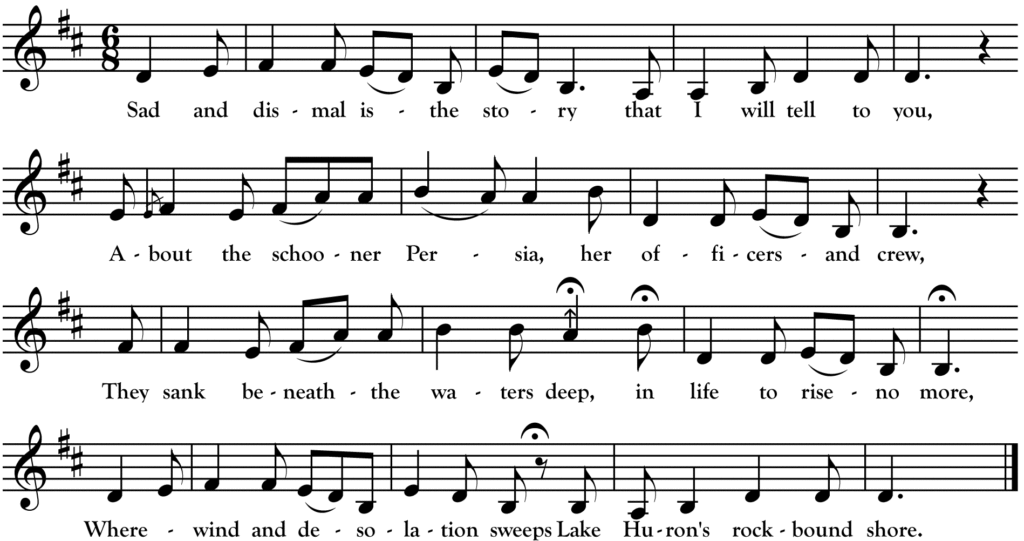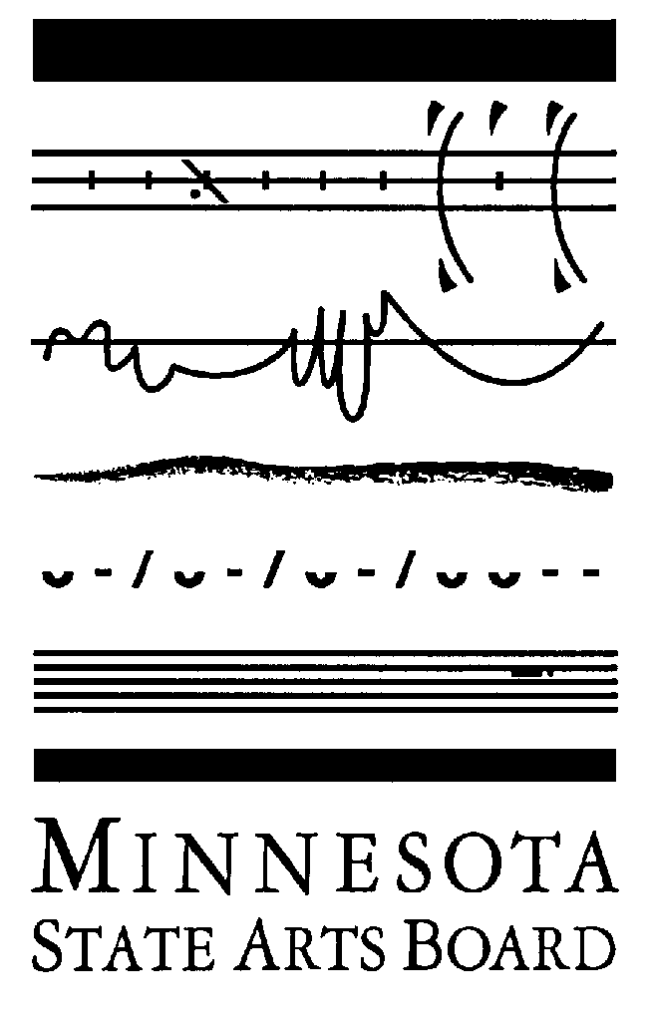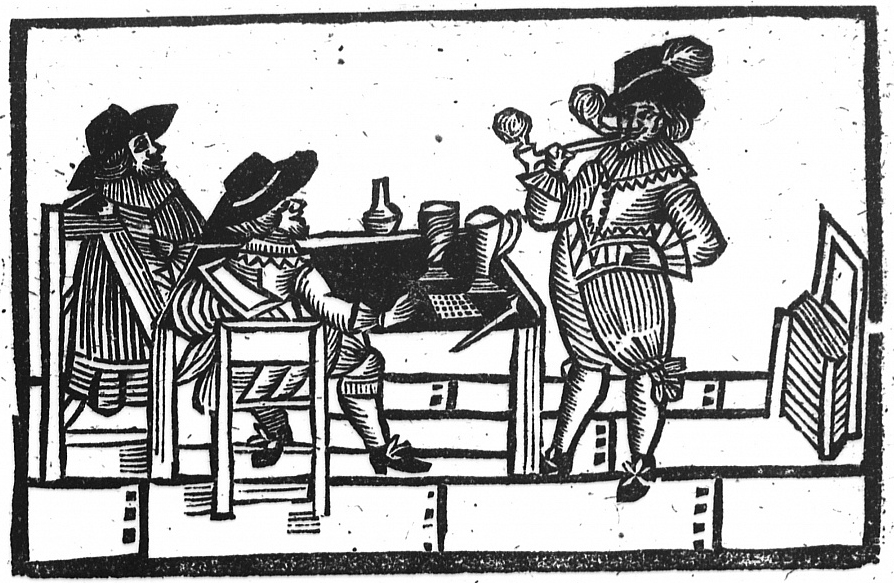Cole Younger
I am a noble-minded man, Cole Younger is my name,
Of my many a depredation my friends I brought to shame,
For robbing of the Northfield bank and the same I will never deny,
And it leaves me a life’s prisoner in Stillwater jail to die.
The first of my many robberies I mean to let you know,
Was a poor Californian a miner lad and for the same I rue,
We took from him his money my boys and we bade him go his way,
For which I will be sorry until my dying day.
Then after getting his money my brother Bob did say,
“It is now we’ll buy fast horses and from home we’ll ride away,”
——-[no text for third line of melody, Green skips to fourth line]——
And we’ll chase the mountain guerrillas until our dying day.
Then we started out to Texas to that good old Lone Star state,
And on the Nebraska prairie the James boys we did meet,
With knives and revolvers we there sat down to play,
A-drinking lots of good old brandy for to drive the blues away.
And the Union Pacific Railroad was the next we did surprise,
And robbing with our bloody hands would take tears on to your eyes,
A-robbing with our bloody hands would take tears on to your eyes,
And on the Nebraska prairie their mouldering body lies.
And then we left that pretty place and northward we did go,
To that God-forsaken country called Minnesot-i-o,
Our mind was fixed on Mankatah [Mankato] bank but brother Bob did say
“Oh if you undertake that job I fear you’ll rue the day.”
Then we stationed out our pickets and up to the bank did go
And there behind the counter, I struck the deadly blow,
“Oh hand me out your money boys and make no long delay,
For we’re the noted Younger boys who gives no time to pray.”
In ten years of searching through archives and old song books for Irish-influenced songs from the Great Lakes region, I have found only a handful of texts that include Minnesota place names. Of the few I have found, I consider this one the best! It is about one of our state’s most notorious historical events: the raid by the James Gang and the Younger Brothers on the Northfield Bank in September 1876. Cole Younger survived the shots fired by citizens of Northfield that day and then 25 years in the Stillwater prison before being released. His celebrity as a real outlaw helped him make a living after release and he attempted to cash in with his own “wild west show” and a published memoir. Today, there are many resources online and in print that tell the fascinating stories of the James Gang, Cole Younger and the Northfield raid-gone-wrong.
I came across the ballad “Cole Younger” in a few books but fell in love with it when I heard it sung by Beaver Island, Michigan singer John W. Green. Versions of the ballad were collected all over the US but Green’s is by far the most Irish-sounding treatment I have found. Green was a prolific traditional singer and the focus of Alan Lomax’s field recordings during his visit to Beaver Island in 1938. You can hear Green singing the song online thanks to the Library of Congress’s recent digitization of Lomax’s Michigan recordings. It is impossible in a transcription (such as mine above) to do justice to the lovely variations and ornamentations that Green puts into each verse as he sings. He was an older man at the time of the recordings and not always in command of his voice but his singing includes many flourishes that hint at the masterful singing community, full of first generation immigrants from Donegal, that Green grew up in on the island in the late 1800s.





![PrintMusic! 2004 - [Three Nations]](http://www.evergreentrad.com/wp-content/uploads/2015/10/Three-Nations-1024x504.jpg)